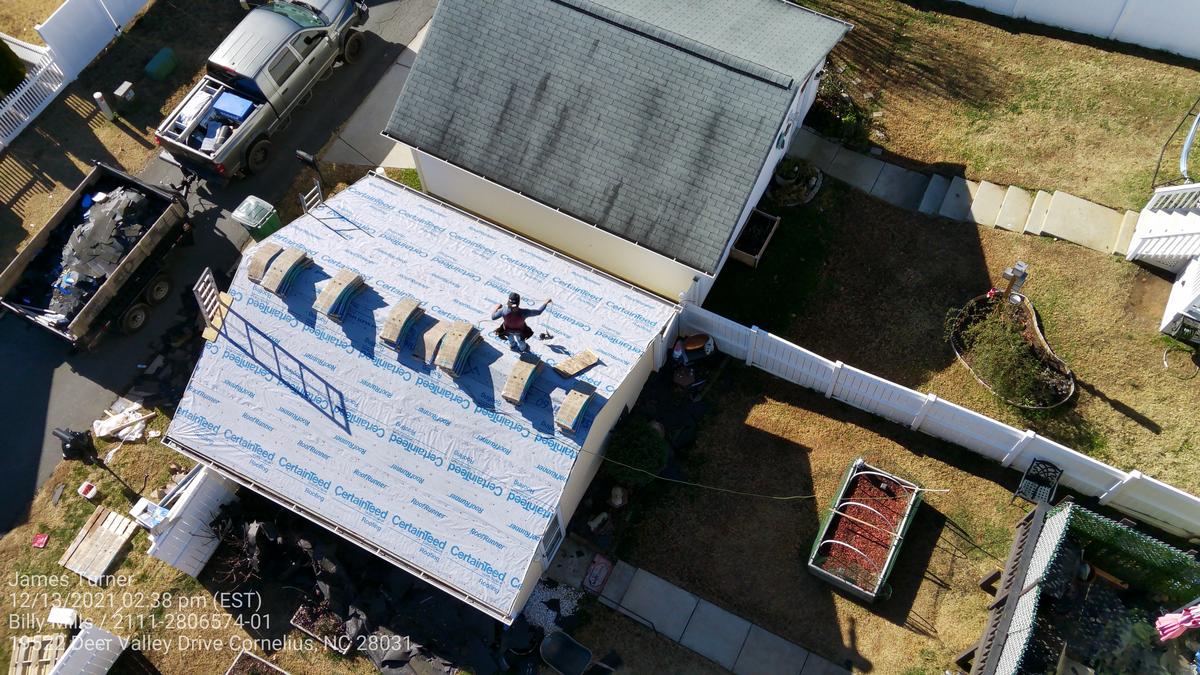Roofing Tips & Guides
Expert Roofing Advice for Charlotte Homeowners
Learn from Charlotte's trusted roofing experts. Tips on maintenance, repair, replacement, and protecting your home from the elements.
Learn from Charlotte's trusted roofing experts. Tips on maintenance, repair, replacement, and protecting your home from the elements.


When it comes to protecting your home, one of the most important components is selecting the right type of residential roof. Your roof is what protects your home from UV radiation, moisture, and rusting, so it’s essential that you choose carefully when selecting a new residential roof for your property. With so many different types of roofs available, how can you be sure that you’re making the best decision for your needs? In this blog post, we’ll cover everything from material selection to design elements as well as factors such as longevity and cost efficiency in order to help guide you through picking out the perfect residential roof for your home.
As a homeowner, it’s important to have a basic understanding of the different types of residential roofs available for your property. Each type comes with its own set of advantages and disadvantages, making it important to choose the right one for your specific needs and budget. Some commonly used roofing options include asphalt shingle, metal, tile, and slate roofs. Asphalt shingle roofs are affordable and versatile, making them a popular choice in most residential settings. Metal roofs, on the other hand, are becoming increasingly popular due to their durability, energy efficiency, and low maintenance requirements. Tile roofs provide excellent insulation and are highly durable, while slate roofs offer unmatched beauty and longevity.
Selecting a roof for your home or business is a big decision that requires careful consideration. It’s important to take into account both your climate and location in order to choose the right roofing material. Different materials work better in certain climates, so it’s vital to think about how much rain, wind, and snow your area experiences. Additionally, your location can affect the style of roof that will be most appropriate for your building. A professional roofing contractor can help guide you through the process and provide recommendations based on your specific needs. Don’t make the mistake of overlooking these important factors and end up with a roof that doesn’t last or provide adequate protection.

When it comes to determining the right pitch for your roof, there are a lot of different factors that come into play. While some people might assume that the pitch of a roof is solely a matter of aesthetics, it actually plays a crucial role in protecting your home from the elements. The pitch of a roof can impact everything from how well your roof sheds water to how much weight it can support. That’s why it’s crucial to work with a professional to determine the appropriate pitch for your unique situation. Whether you’re building a new home or replacing an old roof, investing in the right pitch can help protect your investment for years to come.
Your roof is more than just a protective layer over your home. It’s also an opportunity to enhance the aesthetic appeal and functionality of your property. With additional features, you can transform your roof into a focal point of your home’s exterior. From skylights and ventilation systems to green roofs and solar panels, there are various options to consider when upgrading your roof. By researching these features, consulting with a professional roofing contractor, and weighing the pros and cons of each option, you can make an informed decision on how to enhance your roof.
When embarking on a new project that requires the use of different materials, it is crucial to conduct comprehensive research to ensure the best results. By taking the time to identify the different options available, you can compare and contrast various features and make an informed decision on which material will work best for your project. Factors such as durability, cost, and environmental impact should be taken into account when making your selection, as well as your specific needs and project requirements. Broadening your knowledge on the subject and considering the advantages and disadvantages of each material will ultimately lead to a successful project outcome.
When it comes to residential roofs, there is no one-size-fits-all answer. Selecting the right roof for your home means taking a number of important aspects into consideration, including climate, location, pitch, additional features, and materials. Weighing the pros and cons of DIY roof installation versus professional installation can save you money in the long run if done correctly. Regardless of which option you choose, be sure you do your research to ensure that your new residential roof is both aesthetically pleasing and built to last.

Best Roofing Now
Charlotte's trusted roofing experts since 2019
Based on this article, you may be interested in these services.
We proudly serve these Charlotte-area communities with professional roofing services.
View All Service Areas →Get a free roof inspection and honest assessment from Charlotte's most trusted roofing company.